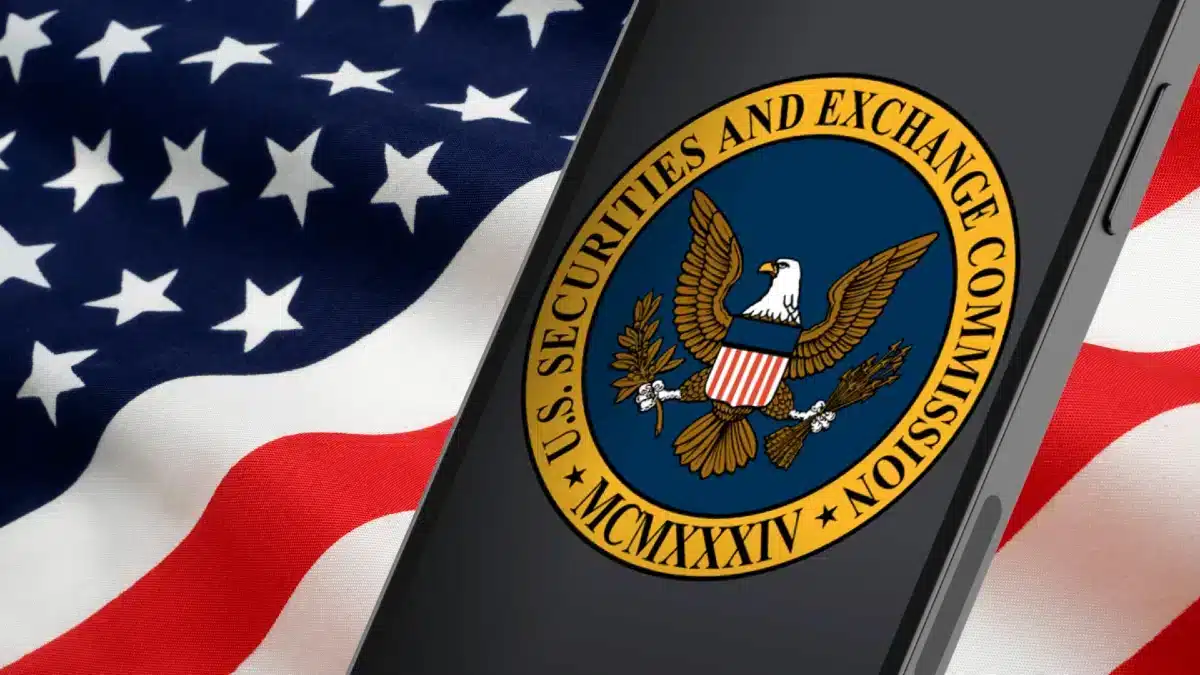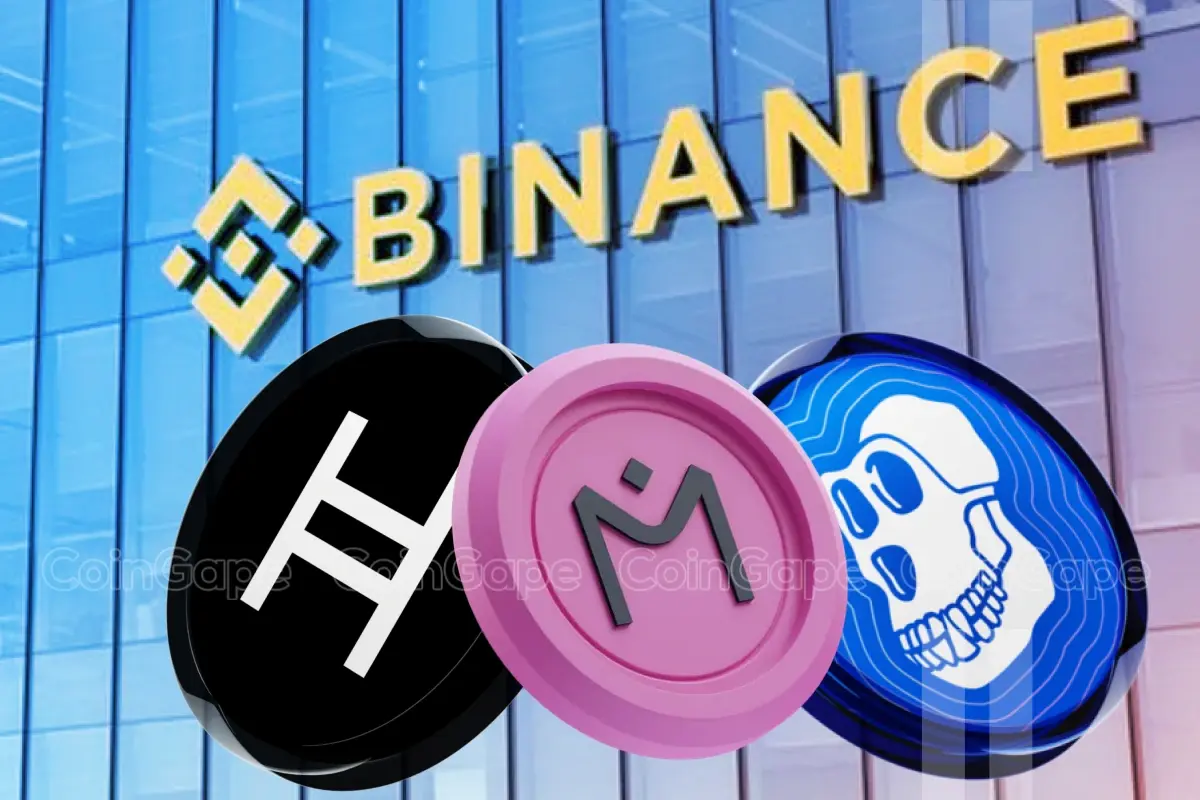Regulation
House to Vote on Combined Crypto Rules and Anti-CBDC

House representatives are gearing up for a vote on two major bills of cryptocurrency legislation. The Financial Innovation and Technology (FIT) for the 21st Century Act and an anti-Central Bank Digital Currency (CBDC) bill, sponsored by Republican representatives, will be on the floor the last week of May.
As a result, this united vote is a landmark event in the governance and prospects of digital assets in the United States.
The FIT for the 21st Century Act and Anti-CBDC Bill
The FIT for the 21st Century Act, also known as HR 4763, is a broad bill that seeks to create a regulatory infrastructure around the cryptocurrency industry. It suggests splitting oversight duties between the Securities and Exchange Commission (SEC) and the Commodity Futures Trading Commission (CFTC).
This legislation, which was approved by the House Financial Services Committee back in July, is aimed at tackling the changing digital assets and making market participants more transparent about it.
🚨SCOOP: The Financial Innovation and Technology (FIT) for the 21st Century Act, aka the comprehensive #crypto rules of the road bill from @HouseAgGOP and @FinancialCmte, is slated for a floor vote in two weeks time. Sources tell me the tentative plan is to combine…
— Eleanor Terrett (@EleanorTerrett) May 10, 2024
The anti-CBDC bill, identified as HR 1122 and introduced by Majority Whip Tom Emmer (R-Minn. ), seeks to prohibit the Federal Reserve from issuing a digital currency to consumers in the first instance. Emmer has criticized the privacy issues and government surveillance, arguing that the digital yuan will only deepen this problem.
The bill, however, was reported favorably out of committee in September and has received the support of conservatives apprehensive about a government-managed digital currency.
Bipartisan Challenges and Legislative Strategy
Merging the two bills into one rule resolution is perceived as a tactical maneuver to simplify the discussion and voting process. Nevertheless, this approach is associated with problems.
Whereas the FIT for the 21st Century Act has received some bipartisan support, Emmer’s anti-CBDC bill has met opposition from the Democrats. No Democrats voted for the amendment to block the CBDC in committee.
Republicans are using this united vote to secure broader support in their camp. Among the groups that expressed concerns over a CBDC were the House conservatives, who wanted to ensure that the interests of such entities were observed by introducing the anti-CBDC bill. Thus, this bill’s inclusion aims to win the votes of Republicans who may be reluctant to endorse the crypto regulation structure.
Potential Impact on Crypto Legislation
The result of this combined vote will be one of the determinants of what comes next as patterns of cryptocurrency regulation in the United States. Financial Services Committee Chair Patrick McHenry (R-N. C. ) is among the leaders who have been instrumental in molding the FIT for the 21st Century Act.
The bill also includes provisions for the regulation of stablecoin and protection for whistleblowers, however, the final text is still uncertain. If the united bills pass the House, they will undergo more scrutiny in the Senate, where bipartisan support will be vital.
Ongoing Debate and Considerations
The discussion of these bills reflects the general questions about the place of digital currency and the government’s control over it. According to a recent statement by Jerome Powell, the Fed will issue the central bank digital currency only if authorized by Congress, which stresses the role of legislative action in this sphere.
Concurrently, the bill has also been criticized by legislators such as Rep. Stephen Lynch (D-Mass.), the ranking Democrat on the House Financial Services crypto panel. Lynch has called the anti-CBDC bill shortsighted, arguing that the US shouldn’t ignore the rise of digital currencies in other countries.
Many other Democrats, including Lynch, worry that adding Emmer’s bill may drive away moderate Democrats who could have supported a wider cryptocurrency regulation.
Also Read:
The presented content may include the personal opinion of the author and is subject to market condition. Do your market research before investing in cryptocurrencies. The author or the publication does not hold any responsibility for your personal financial loss.
Regulation
BitClave Investors Get $4.6M Back In US SEC Settlement Distribution

BitClave investors have started receiving $4.6 million in repayments from the U.S. Securities and Exchange Commission (SEC), following a settlement reached in 2020. The SEC announced on Nov. 20 that payments from the BitClave Fair Fund had been disbursed to eligible investors harmed during the company’s 2017 initial coin offering (ICO).
Pro-XRP lawyer and online commentator “MetaLawMan” criticized the SEC’s stance on digital assets, stating on social media, “Here we go again with ‘digital asset securities.’ Unbelievable.” The lawyer’s statement reflects ongoing industry frustrations over the SEC’s regulatory approach to cryptocurrencies.
BitClave Investors Get $4.6M Back in US SEC Settlement
The US SEC assured the public that $4.6 million was returned to investors who filed the claims and were eligible for the refunds. These funds were agreed upon in 2020 after the SEC accused BitClave of conducting an unregistered ICO.
The company’s initial coin offering (ICO) in 2017 brought in $25.5 million in only 32 seconds and distributed its Consumer Activity Token (CAT) to thousands of buyers. The SEC therefore claimed that the ICO was an unregistered securities transaction because potential investors were induced to invest in the CAT token with an expectation of appreciation of its value.
Under the settlement, BitClave will have to refund the money it raised and also pay $4 million in fines and interest. In between these settlements, John Deaton has accused the regulator of using laws that were set in 1933.
The Fair Fund was therefore created to ensure that the funds are returned to the affected investors. The claims submission period closed in August 2023, and the eligible investors received the information on the claims in March 2024. The Securities and Exchange Commission posted on its social media accounts that the payment has been made, and “the checks are in the mail.”
BitClave Settlement Included Penalties and Token Destruction
In the settlement, BitClave did not accept or reject the accusations made by the SEC but agreed to cough up $29 million. This total consisted of the $25.5 million that was generated in the ICO and the additional $4 million in fines.
Concurrently, the company also committed to burning 1 billion of the catalyst tokens that have not been distributed and to ask exchanges to delist the token.
The Securities and Exchange Commission therefore pointed out that by February 2023, BitClave had only remitted $12m to the Fair Fund, thus leaving questions on the balance of $7.4m. Neither the SEC nor the fund administrator gave further details on the matter, and it is still uncertain as to how the outstanding payment will be collected.
US SEC Maintains Strict Regulatory Stance on Crypto
The US SEC has continued to enforce regulations on crypto companies under the Biden administration, with over 100 enforcement actions taken against the industry. BitClave’s settlement, subsequently, is one of many cases where the regulator has targeted unregistered ICOs and other alleged securities violations.
BitClave’s case, handled under former SEC Chairman Jay Clayton, emphasized the agency’s view that many digital assets fall under securities laws. The CAT white paper described potential value increases, which the regulator argued encouraged speculative investment in an unregistered security.
As the US SEC faces criticism, President-elect Donald Trump has expressed plans to reshape crypto oversight. Trump has promised to remove current SEC Chair Gary Gensler and is reportedly considering creating a new White House position dedicated to cryptocurrency policy.
Disclaimer: The presented content may include the personal opinion of the author and is subject to market condition. Do your market research before investing in cryptocurrencies. The author or the publication does not hold any responsibility for your personal financial loss.
Regulation
US SEC Pushes Timeline For Franklin Templeton Crypto Index ETF

The United States Securities and Exchange Commission (US SEC) has further delayed its decision on Franklin Templeton’s Bitcoin and Ethereum index ETF. From the filing made on November 20, 2024, it has been agreed that the decision on the proposal will be made on January 6, 2025 to afford the regulating authority ample time to consider the proposal.
US SEC Extends Review Period for Franklin Templeton Crypto Index ETF
According to the US SEC filing of November 20, 2024, the commission deferred its decision on the Bitcoin and Ethereum index ETF by Franklin Templeton. Therefore, the regulatory body is seeking to extend the review period to January 6, 2025. The extension will help to have more time to consider the application which was filed on September 19, 2024.
The proposal was first published in the Federal Register on October 8, to kick start a thirty-five (35) days review period. As a result, the review was to end on November 22, 2024. Consequently, the review was to expire on November 22, 2024. However, the SEC’s decision to delay indicates a thorough approach to reviewing the fund’s compliance with crypto regulations.
Meanwhile, no public comments on the proposed rule change have been submitted, leaving the US SEC to focus on internal assessments. This delay concurs with the commission’s conservative approach to the products that are connected with cryptocurrencies. The extra time will allow more detailed research of fund’s organization and market risks.
Franklin Templeton Expands Push Into Cryptocurrency ETFs
Franklin Templeton is broadening its efforts in the cryptocurrency space with its proposed Bitcoin and Ethereum index ETF. The asset manager, which oversees $1.5 trillion in assets, has previously launched a spot Bitcoin ETF and a spot Ethereum ETF.
If approved, the latest ETF would add to Franklin Templeton’s portfolio of crypto-focused investment products, further diversifying options for institutional.
In addition, Franklin Templeton has taken a major step in its tokenization efforts, announcing the expansion of its Benji tokenization platform to the Ethereum network. This marks the fifth blockchain integration for the platform this year, following launches on Aptos, Avalanche, Arbitrum, and Coinbase’s Base.
Despite the US SEC overall crypto ETF delays, other market players are moving further with their strategies . Last week, Bitwise submitted a registration statement to transform the Bitwise 10 Crypto Index Fund which now manages $1.3 billion into an ETP. It investments in Bitcoin represent 75% of the fund and Ethereum is 16% of the fund; these two assets sum up to 91%.
Moreover, the filing comes when diversified crypto index funds seem to be gaining popularity among investors. Bitwise’s move will make investing in cryptocurrencies more accessible for retail audiences. When approved, this ETP will also set a paradigm for the expansion of multi-asset crypto based product offerings.
Disclaimer: The presented content may include the personal opinion of the author and is subject to market condition. Do your market research before investing in cryptocurrencies. The author or the publication does not hold any responsibility for your personal financial loss.
Regulation
US DOJ Charges Five Hackers In $6.3M Crypto Hack & Corporate Data Breaches

The United States Department of Justice (DOJ) has charged five individuals in connection with a crypto hacking scheme that allegedly stole $6.3 million in cryptocurrency and breached sensitive corporate data.
The charges, announced on Wednesday, stem from a multi-year phishing and hacking operation that targeted employees of major tech firms, telecommunication companies, and cryptocurrency platforms.
US DOJ Charges Five Hackers In $6.3M Crypto Hack
The US DOJ identified the defendants as Ahmed Hossam Eldin Elbadawy, 23, of Texas; Noah Michael Urban, 20, of Florida; Evans Onyeaka Osiebo, 20, of Texas; Joel Martin Evans, 25, of North Carolina; and Tyler Robert Buchanan, 22, a UK citizen arrested in Spain earlier this year. All five have been charged with conspiracy to commit wire fraud, aggravated identity theft, and related offenses.
According to prosecutors, the group used phishing text messages to steal employees’ credentials, enabling unauthorized access to corporate systems and cryptocurrency accounts. Buchanan faces additional charges of wire fraud, which carries a potential 20-year prison sentence.
The defendants are accused of targeting at least 45 companies in the U.S., Canada, the UK, and other nations between September 2021 and April 2023. The alleged crypto hack scheme involved spoofing legitimate portals of companies such as Okta and compromising two-factor authentication to obtain sensitive information.
Phishing Attacks and Cryptocurrency Thefts
The hacking operation reportedly involved sending fraudulent SMS messages to employees of victim companies, warning them that their accounts were at risk of deactivation. These messages contained links to phishing websites designed to mimic the companies’ legitimate login portals. Employees who entered their credentials unwittingly gave the hackers access to their accounts and corporate systems.
Once inside the systems, the hackers stole intellectual property, proprietary data, and sensitive personal information. They also used SIM-swapping techniques to bypass additional account protections and reset passwords. The US DOJ stated that one victim alone lost $6.3 million in cryptocurrency due to these attacks.
Akil Davis, Assistant Director of the FBI’s Los Angeles Field Office, emphasized the dangers of phishing scams, saying, “These types of fraudulent solicitations are ubiquitous and rob American victims of their hard-earned money with the click of a mouse.”
US DOJ Links to Notorious Hacking Groups
Security researchers have linked the accused individuals to cybercrime groups known as “0ktapus” and “Scattered Spider,” which are believed to be responsible for previous high-profile attacks.
These groups reportedly breached hundreds of companies, including Twilio, Coinbase, and Doordash, during a hacking campaign in 2022. They later expanded their operations to target gaming companies such as Riot Games in 2023.
The court documents describe the group as a loosely organized, financially motivated cybercriminal network. Law enforcement officials believe other individuals involved in the operation remain unidentified, with the indictment mentioning unnamed co-conspirators.
Potential Sentences and Ongoing Investigations
If convicted, the defendants face severe penalties. Each could receive a maximum of 20 years in prison for conspiracy to commit wire fraud, up to five years for conspiracy, and an additional mandatory two-year sentence for aggravated identity theft. Prosecutors also revealed that Urban faces fraud charges in a separate federal case in Florida.
Concurrently, former FTX executive Gary Wang recently avoided prison time despite his role in the collapse of the cryptocurrency exchange. Wang admitted to helping write the code that enabled FTX founder Sam Bankman-Fried to misappropriate $8 billion in customer funds. Judge Lewis Kaplan ruled that Wang’s cooperation with authorities and lack of personal financial gain justified leniency.
The US DOJ continues to investigate the matter, warning companies to remain vigilant against phishing attempts. U.S. Attorney Martin Estrada stated, “If something about the text or email you receive or the website you’re viewing seems off, it probably is.”
Disclaimer: The presented content may include the personal opinion of the author and is subject to market condition. Do your market research before investing in cryptocurrencies. The author or the publication does not hold any responsibility for your personal financial loss.
-

 Market13 hours ago
Market13 hours agoThis is Why MoonPay Shattered Solana Transaction Records
-

 Ethereum10 hours ago
Ethereum10 hours agoFundraising platform JustGiving accepts over 60 cryptocurrencies including Bitcoin, Ethereum
-

 Regulation17 hours ago
Regulation17 hours agoBitClave Investors Get $4.6M Back In US SEC Settlement Distribution
-

 Regulation21 hours ago
Regulation21 hours agoDonald Trump’s transition team considering first-ever White House crypto office
-

 Market17 hours ago
Market17 hours agoNvidia Q3 Revenue Soars 95% to $35.1B, Beats Estimates
-

 Market16 hours ago
Market16 hours agoDogecoin (DOGE) Price Momentum Weakens Despite Rally
-

 Market21 hours ago
Market21 hours agoHow WIF Active Addresses Could Affect the Meme Coin Price
-

 Altcoin15 hours ago
Altcoin15 hours agoCrypto Analyst Says Dogecoin Price Has Entered Parabolic Surge To $23.36. Here Are The Reasons Why

















✓ Share: